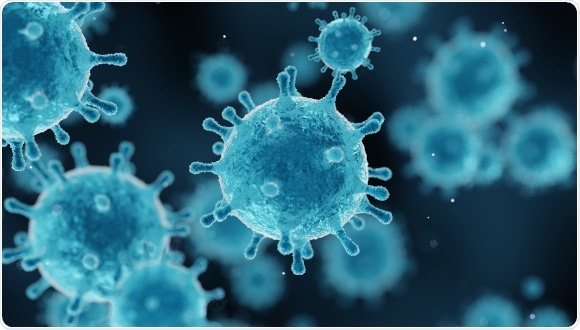Scientists from Tel Aviv University (TAU) have proposed that carriers of two genetic mutations PiS and PiZ face a greater risk for severe illness and even death from COVID-19 disease.

Image Credit: American Friends of Tel Aviv University.
These genetic mutations cause deficiency in the alpha-antitrypsin protein—a protein that protects lung tissues from becoming damaged during severe infections. Other research works have already linked the deficiency in this protein with inflammatory damage to lung function in various other diseases.
The study was headed by Professor David Gurwitz, Professor Noam Shomron, and MSc candidate Guy Shapira from TAU’s Sackler Faculty of Medicine, and published in The FASEB Journal on September 22nd, 2020.
The team examined the data collected from 67 nations on all continents. Comparisons showed a highly considerable positive correlation between the prevalence of both mutations in the population and the mortality rates of COVID-19 (adjusted to the population size) in several nations, like the UK, the USA, Italy, Spain, Belgium, and more.
As a result, the team proposed that these genetic mutations can be additional risk factors for severe cases of COVID-19 disease. They have currently proposed that their discoveries should be validated by clinical trials, and if confirmed, should result in population-wide screening for detecting carriers of the PiS and/or PiZ mutations.
Such patients should be subsequently advised to take additional measures of social distancing and should be later prioritized for vaccination as soon as vaccines are available. The team stated that these measures can be effective in decreasing the fatality and morbidity rates of COVID-19.
Analysis of databases shows that in Belgium, where 17 of every 1,000 citizens carry the PiZ genetic mutation—the more dominant of the two mutations mentioned in this study—the rate of COVID-19 mortality was 860 per million in accordance with the figures in September 2020.
The picture is similar in Spain: 17 of every 1,000 people carry the PiZ mutation, and the rate of COVID-19 fatality is 640 per million. In the United States, where 15 per 1,000 people are carriers, 590 of every million died of COVID-19.
In the United Kingdom, the numbers corresponds with the overall trend: 14 per 1,000 people carry the mutation and 60 per million have died of the coronavirus. In Italy, where 13 per 1,000 people are carriers, the COVID-19 mortality rate is 620 per million. In Sweden, where 13 per 1,000 people are carriers, the COVID-19 fatality rate is 570 per million.
Conversely,, the team observed that in several countries in South East Asia and Africa, where these genetic mutations are comparatively uncommon; the rate of COVID-19 mortality is correspondingly low as of September 2020. In Japan, where 9 of every million citizens died in the pandemic, the prevalence of mutations was found to be insignificant. Analogous numbers were also found in South Korea, China, Thailand, Taiwan, Cambodia, and Vietnam.
Our data analysis reveals a strong correlation between these mutations and severe illness and death from COVID-19. We call upon the research community to test our hypothesis against clinical data, and also call upon decision makers in every country to conduct population-wide screening for identifying mutation carriers and prioritize them for vaccination once COVID-19 vaccines have been approved. In the meantime, carriers should be notified that they may belong to a high-risk group and advised to maintain strict social isolation.”
Study Researchers
Source:
Journal reference:
Shapira, G., et al. (2020) Ethnic differences in alpha-1 antitrypsin deficiency allele frequencies may partially explain national differences in COVID-19 fatality rates. FASEB Journal. doi.org/10.1096/fj.202002097.